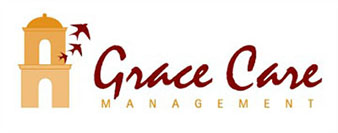For Geriatric Care Managers who are front line sentinels watching over their patient/client’s health and safety, one of the first things we look for when there is a sudden change of condition is the potential for a urinary tract infection. For the elderly, a urinary tract infection or UTI, is a common occurrence and can be the cause of many an elder becoming very ill, very quickly. UTI’s account for a full 30% of all infections reported by acute care hospitals. They are the source of much suffering for the elderly and if not treated can lead to kidney infections and a serious, even life-threatening illness called “urosepsis.”
The thing is, UTI’s are often overlooked in the elderly when they don’t present with the usual symptoms: burning or frequency of urination, concentrated urine with a strong odor. With the demented patient especially, there may be no feedback regarding pain or discomfort, and caregivers can easily overlook some other obvious symptoms if not alert.
Often, the UTI may not look like itself at all. Only experienced caregivers and clinicians know to look for a UTI under the mask of some other things.
In the elderly, a UTI can look like weakness, lethargy and sleepiness. It often appears as increased confusion, delirium and an altered state of consciousness.
If not identified and treated, a UTI can progress to kidney infection with escalating signs and symptoms including flank/back pain, fever, chills, vomiting etc.
Urosepsis is a further complication of an untreated UTI, and this is a serious, even potentially life-threatening situation for the elderly.
For all caregivers, family members and Geriatric Care Managers, being aware of the prevalence of UTI’s in their elders is very important. Quick reporting from the caregiver onsite is important so the primary doctor can prescribe an antibiotic which will usually clear up the infection in no time.
Those most at risk for UTI’s:
– Elders with indwelling Foley catheters (common in nursing home patients)
– Elders with bowel incontinence (immaculate personal care is needed)
– Diabetics
– Immunosuppressed patients
– Those with BPH/urinary blockages
– Alcoholics
– Patients receiving steroid therapy
Preventive measures:
– Make sure your elder is well hydrated.
– Cranberry is often used as a preventive support. Ask your doctor about their preferences in supplement.
– Some probiotics also tend to change the pH towards a less favorable environment for bacterial growth.
– Good “peri care” is essential in preventing E. coli bacteria from getting where it doesn’t belong!
Being aware of the possibility of a UTI whenever there are changes in condition is half the battle. Taking quick action to notify the medical team is the other half of the battle. Caregivers should communicate any symptoms to the Geriatric Care Manager immediately so they may assist in getting the elder treatment.

